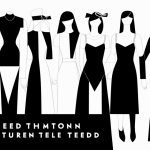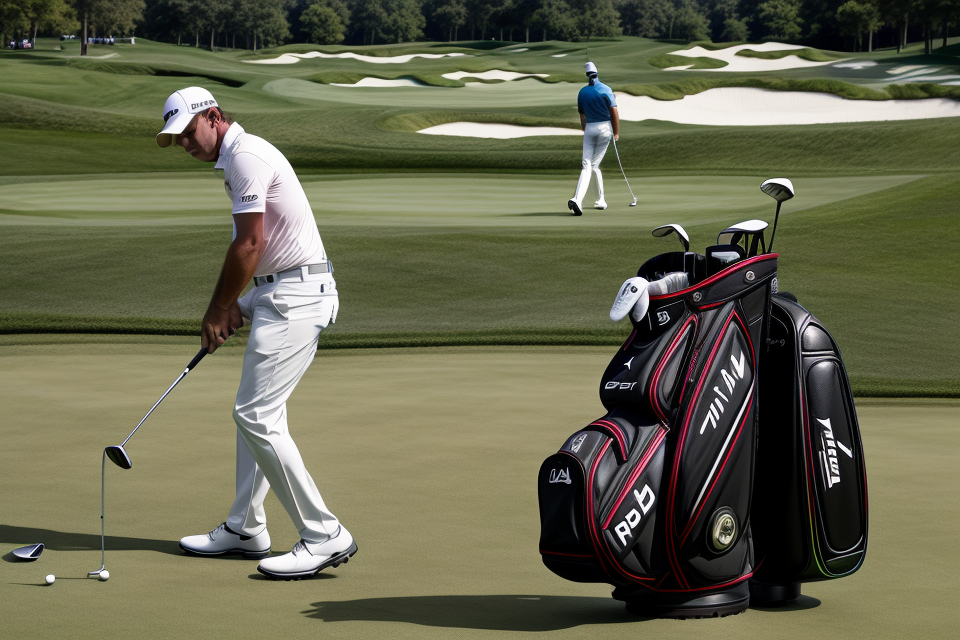In the world of professional golf, caddies play a crucial role in the success of a player. But do PGA players have to have a caddie? In this deep dive into the PGA Tour, we will explore the role of caddies in professional golf and examine whether players are required to have one. We will also delve into the history of caddies in golf and how their role has evolved over time. Whether you’re a golf enthusiast or simply curious about the game, this article will provide an insightful look into the world of professional golf and the role of caddies within it. So, let’s get started and find out more about the fascinating world of caddies on the PGA Tour.
What is a caddie?
Definition and role in golf
A caddie is a person who assists professional golfers during tournaments by carrying their bags, providing advice on club selection, yardage, and course strategy, and generally helping them to make the best possible decisions on the course.
Skills required to be a caddie
To be a successful caddie on the PGA Tour, one must possess a range of skills, including:
- Knowledge of the game: A caddie must have a deep understanding of the rules of golf, as well as the skills and techniques required to play at a high level.
- Course management: A caddie must be able to read and interpret the conditions of the course, such as wind direction and speed, and advise the golfer on the best strategy for each hole.
- Physical fitness: Caddies must be able to carry a golfer’s bag, which can weigh up to 30 pounds, over long distances and uneven terrain, often in hot and humid conditions.
- Mental toughness: Caddies must be able to handle the pressure of working in a high-stakes environment, and must be able to remain calm and focused even when the golfer is under stress.
- Communication skills: A caddie must be able to communicate effectively with the golfer, providing advice and encouragement as needed, and must be able to read the golfer’s body language and respond appropriately.
Why do PGA players need caddies?
Advantages of having a caddie
Caddies provide several advantages to PGA players that help them perform at their best on the golf course. These advantages include:
- Green reading: Caddies are skilled at reading greens, which can help players make more accurate putts. They use their knowledge of the course, the grass type, and the weather conditions to provide insights into the slope and speed of the greens.
- Yardage and club selection: Caddies are responsible for measuring the distance between the player’s ball and the hole, as well as recommending the appropriate club for the shot. This information allows players to make informed decisions about their shots and adjust their strategy accordingly.
- Ball spotting: Caddies help players locate their balls on the course, which can be difficult to do from a distance. This assistance saves players time and energy, allowing them to focus on their shots.
- Mental support: Caddies provide emotional support to players, helping them stay focused and calm under pressure. They can also offer advice and encouragement during tough times on the course.
Types of caddies on the PGA Tour
There are two main types of caddies on the PGA Tour:
- Full-time caddies: These caddies work exclusively for one player and are responsible for all aspects of their game. They travel with the player to tournaments, practice sessions, and other events.
- Part-time caddies: Part-time caddies work for multiple players and are hired on a tournament-by-tournament basis. They may also work for players who do not have full-time caddies. Part-time caddies typically have more experience and knowledge of different courses, which can be valuable to players who are unfamiliar with a particular course.
Who can be a caddie for a PGA player?
Qualifications and requirements
To become a caddie for a PGA player, an individual must meet certain qualifications and requirements. These requirements may vary depending on the specific tournament or event, but generally, a caddie must be at least 18 years old and have a valid PGA Tour caddie card.
Additionally, caddies must possess a strong knowledge of golf course management, including course layout, strategy, and player tendencies. They must also be able to communicate effectively with the player, provide mental support, and assist with club selection and other aspects of the game.
Differences between professional and amateur caddies
Professional caddies typically have more experience and knowledge of the game than amateur caddies. They have often worked with multiple PGA players and have developed a reputation for their expertise on the golf course. In contrast, amateur caddies may be family members or friends of the player who are not as familiar with the game and may not have the same level of experience.
However, it is important to note that amateur caddies can still play a valuable role in a player’s success. They may offer unique insights or perspectives that a professional caddie may not have, and they can also provide emotional support and encouragement to the player. Ultimately, the success of a caddie depends on their ability to work effectively with the player and contribute to their overall performance on the golf course.
Do all PGA players have caddies?
Statistics and trends
The majority of professional golfers on the PGA Tour have caddies, with approximately 80-90% of players employing one. This trend has remained relatively consistent over the past few decades, with a slight increase in the number of players using caddies in recent years. The high prevalence of caddies among PGA Tour players can be attributed to the numerous benefits they provide, such as strategic advice, course knowledge, and assistance with club selection and green reading.
Reasons for not having a caddie
Despite the prevalence of caddies among PGA Tour players, there are some who choose to compete without one. Reasons for this decision may include:
- Personal preference: Some players may simply prefer to navigate the course and make decisions on their own, without the input of a caddie.
- Cost: Hiring a caddie can be expensive, and not all players can afford the additional expense, especially those who are still establishing themselves on the tour.
- Limited course knowledge: Players who are less familiar with a particular course may opt not to use a caddie, as they would not be able to provide much valuable guidance.
- Injury or disability: Some players may have physical limitations that prevent them from carrying a bag or using a caddie, in which case they may choose to compete without one.
In conclusion, while the vast majority of PGA Tour players do have caddies, there are still some who choose to compete without one for various reasons. The decision to use or not use a caddie ultimately depends on the individual player’s preferences, needs, and circumstances.
How does a caddie help a PGA player?
On-course assistance
A caddie plays a crucial role in assisting a PGA player during a golf tournament. They are responsible for carrying the player’s bag, which contains all the clubs and other equipment needed for the game. Additionally, caddies help players navigate the course, providing advice on the best routes to take and suggesting strategies for playing each hole. They may also help players read greens, suggesting the best approach for putting and chipping.
Mental support and advice
Beyond on-course assistance, caddies also provide mental support and advice to PGA players. They often act as a confidant and sounding board, helping players deal with the pressure and stress of competing at a high level. Caddies may offer words of encouragement, suggest ways to focus, or help players develop strategies for managing their emotions on the course.
Equipment management
Caddies are also responsible for managing a player’s equipment, ensuring that the clubs and other gear are in good condition and ready for use. They may repair clubs or replace grips, and they are responsible for keeping track of which clubs the player has used throughout the tournament. This allows players to focus on their game without worrying about the logistics of their equipment.
Overall, the role of a caddie in professional golf is multifaceted, encompassing on-course assistance, mental support, and equipment management. They are an essential part of a player’s team, helping them to perform at their best and achieve success on the course.
What happens when a PGA player changes caddies?
Factors leading to a change
The decision to change caddies is often driven by a variety of factors, such as:
- Underperformance: If a player is not performing well, they may consider replacing their caddie in the hope that a new perspective or approach will help improve their game.
- Personal conflicts: Tensions or disagreements between the player and caddie can lead to a breakdown in their working relationship, necessitating a change.
- Health issues: If a caddie is injured or unable to perform their duties, a player may seek out a replacement.
- Retirement or resignation: In some cases, a caddie may retire or resign, forcing their player to find a new caddie.
Adjusting to a new caddie
The process of adjusting to a new caddie can be challenging for a player. It requires building a new working relationship and establishing trust, which can take time. Some players may struggle to communicate effectively with a new caddie, leading to miscues or mistakes on the course.
However, a new caddie can also bring fresh ideas and perspectives, potentially improving a player’s performance. It is not uncommon for players to seek out caddies with experience on specific courses or with expertise in certain areas of their game.
Additionally, some players may choose to bring on a temporary caddie for a specific event or tournament, such as when their regular caddie is unavailable due to injury or personal reasons. This can help alleviate some of the pressure of adjusting to a new caddie under high-stress conditions.
The impact of a great caddie on a PGA player’s career
Examples of successful caddie-player partnerships
In professional golf, a great caddie can make all the difference in a player’s success. Many successful players have attributed their victories to the guidance and support of their caddies. For example, Phil Mickelson and Jim “Bones” Mackay had a successful partnership that lasted for over 25 years. During this time, Mickelson won several major championships, including the Masters in 2004 and 2006. Mackay’s knowledge of course strategy and ability to read greens helped Mickelson make crucial decisions on the course.
Another example is the partnership between Tiger Woods and Steve Williams. Williams caddied for Woods from 1999 to 2011, a period during which Woods won 13 of his 15 major championships. Williams’ experience and knowledge of the game helped Woods make crucial decisions and improved his mental and physical game.
The role of the caddie in major championships
In major championships, the role of the caddie becomes even more critical. These events have larger fields and tougher courses, making it harder for players to make crucial decisions. A great caddie can help a player navigate the course, read the greens, and make strategic decisions that can make the difference between winning and losing.
For example, in the 2016 Masters, Adam Scott’s caddie, Ricci Roberts, made a crucial decision that helped Scott win the tournament. With Scott tied for the lead on the final hole, Roberts advised Scott to play a safe approach shot to the green, rather than trying to reach the green in two. This decision allowed Scott to make par and win the tournament by one stroke.
In conclusion, a great caddie can have a significant impact on a PGA player’s career. They provide guidance, support, and strategic advice that can help players make crucial decisions on the course. Successful caddie-player partnerships have been critical to many major championships, and the role of the caddie will continue to be an important factor in professional golf.
FAQs
1. What is the role of a caddie in professional golf?
A caddie in professional golf is responsible for carrying the player’s bag, providing advice on club selection, reading greens, and helping with course strategy. They also manage the player’s equipment, keep score, and provide emotional support during the round.
2. Do all PGA players have a caddie?
No, not all PGA players have a caddie. Some players prefer to carry their own bag or use a golf cart, while others choose to use a caddie for various reasons such as experience, knowledge of the course, or physical limitations.
3. What qualifications does a caddie need to have to work on the PGA Tour?
Caddies on the PGA Tour typically have years of experience working on the professional golf circuit. They must be knowledgeable about golf course strategy, have a strong understanding of golf rules, and be able to read greens and provide advice on club selection. Additionally, they must be able to manage the player’s equipment, keep score, and provide emotional support during the round.
4. How is a caddie hired by a PGA player?
A caddie is typically hired by a PGA player through a referral from another player or a caddie master. The player may also hire a caddie through a caddie agency, which provides experienced caddies for players on a temporary basis.
5. How long does a typical caddie work for a PGA player?
A typical caddie works for a PGA player for several years, but the length of the relationship can vary. Some players and caddies work together for many years, while others may only work together for a few tournaments or seasons.
6. How much do PGA caddies earn?
PGA caddies typically earn a percentage of the player’s winnings, which is called the “caddie fee.” The percentage can vary depending on the player’s performance and the length of the relationship with the caddie. In addition to the caddie fee, some caddies may also receive a salary or retainer fee from the player.
7. What happens if a PGA player doesn’t have a caddie?
If a PGA player doesn’t have a caddie, they may choose to carry their own bag, use a golf cart, or use a club caddie, who is typically a member of the golf club staff and is not specifically hired by the player. However, using a caddie is often preferred by players as they can provide valuable experience, knowledge, and support during a tournament.









